Arnon Grunberg's Blog, page 7
August 12, 2025
Foreign
 Conference
ConferenceOn tariffs – Ferdinand Mount in LRB:
“Donald Trump likes to tell us that ‘tariff’ is ‘the most beautiful word in the dictionary’. He does not remind us that the word comes from the Arabic ta’rif,or that such duties were first applied by medieval sheikhs and sultans in some of the places he has designated as ‘shithole countries’. They were not really things of beauty either, being modest tolls to raise a little revenue, not intended to keep out foreign stuff, and were seldom charged at more than 5 per cent. It was the same in ancient Greece and Rome: customs duties were charged at ports of entry at rates of between 1 and 5 per cent. In Rome, the portoria on luxury imports – silk, pearls, incense, pepper – could go much higher, up to 12 or even 25 per cent, but these were sumptuary taxes, to appease killjoys such as Seneca and Pliny. They too were not protective, being levied on goods that Rome could not produce itself.
Trump once scribbled a note on the way back from a frustrating G20 conference: ‘TRADE is BAD.’ Classical thinkers would have tended to agree, if not on quite the same grounds. Aristotle thought that the life of tradesmen and mechanics was ‘ignoble and inimical to virtue’. He rather approved of the way that Thebes disqualified business types from public office until they had been retired for ten years. In The Laws, Plato deplores people living near harbours: ‘Although there is sweetness in proximity for the uses of daily life; for by filling the markets of the city with foreign merchandise and retail trading, and by breeding in men’s souls knavish and tricky ways, it renders the city faithless and loveless.’ Self-sufficiency, autarkeia, was always preferable, trade at best a necessary evil. Only Pericles, according to Thucydides, had positive things to say about an open commercial society:The greatness of our city brings it about that all the good things from all over the world flow in to us, so that to us it seems just as natural to enjoy foreign goods as our own local products ... Our city is open to the world, and we have no periodical deportations in order to prevent people observing or finding out secrets which might be of military advantage to the enemy.
It was also Pericles, however, who brought in a law forbidding foreign-born Athenians from claiming full citizenship, which would certainly have appealed to Trump (though his wife would have fallen foul of the law, as indeed did the second wife of Pericles).”
(…)
“This is an unnerving parallel, and not the least unnerving aspect of the rise of the tendencies – isolationist, nationalist, populist or a combination of all three – which have so abruptly turned ‘globalist’ into a term of abuse. Chu, a BBC journalist of Chinese descent brought up in the North of England, is an acute guide, both to the historical resonances and the present economic realities, which leave even the most cocksure of us breathless and not a little baffled. We might start at the very least by looking further back beyond the 1930s, to try to trace the peculiar origins of protectionism as a weapon of choice in the armoury of modern governments. Trade history is too often a sideline reserved for economic historians, yet any effective study of the past four hundred years ought to move it to centre stage, as a prime generator of war and peace, stability and chaos, prosperity and dearth. As Clausewitz might have said, shooting wars are trade wars carried on by other means. Napoleon’s invasion of Russia, for instance, came after the tsar quit the Continental Blockade.”
(…)
“Mercantilism usually means cronyism. As soon as a government resorts to protection, it is besieged and then manipulated by entrepreneurs angling for contracts and subsidies. That certainly happened in France, where Colbert’s friends and relations collected most of the taxes and then dished out the proceeds to their own businesses. Samuel Daliès de la Tour, for example, was not only chief tax collector for the Dauphiné but also a big supplier of timber and iron to the rapidly growing navy, with a nice sideline in textiles and sugar and also shares in the great colonial companies – quite a match for the Rockefellers and Musks of the modern era. Rather than ‘l’État, c’est moi,’ Daniel Dessert writes in his scorching demolition of the Colbert myth, Colbert ou le mythe de l’absolutisme (2019), it was a case of ‘l’État, c’est eux!’ The same nexus of omnivorous oligarchs was to be seen in America’s Gilded Age, and now in the mob of tech bros crowding into the photo at Trump’s second inauguration. The itch to have it all had come to stay, along with a willingness to deploy every tool that came to hand: tariffs, blockades, monopolies.”
(…)
“The steel tariffs imposed by Carter, Reagan and George W. Bush had been equally ineffective – and costly. Trump’s yo-yoing between threats and hints at deals in the past few months are no more likely to do anybody much good, except of course the US Treasury, which according to Chu’s report for BBC Verify in July is now hauling in $28 billion per month in import duties, triple the rate last year. It is slowly dawning on the American public that, at the end of these tedious tussles, they are likely to be paying around 15 per cent more for their imports (18.2 per cent is Chu’s latest average figure, up from a mere 2.4 per cent under Biden, and the highest level since 1934). Trump is already trying to soften the blow by hinting at some kind of cashback from the Treasury to US taxpayers – which would only make the whole exasperating carousel seem more pointless still.”
(…)
“Or by contrast, take steel, since the days of Hamilton the prime target for tariffs. There is now a huge world oversupply of steel – which is indeed largely China’s fault and now China’s problem – but it is also the case that Western countries with an ailing steel industry, such as the UK, have, over the years, accumulated enough scrap for recycling to be able to meet most of their future demand for steel. They have only to offer a little judicious support to the necessary electric arc furnaces. The problem is eminently soluble without resort to tariffs, like so many other problems, such as the fact that the majority of the world’s advanced chips are manufactured, not in China, but in Taiwan by the Taiwan Semiconductor Manufacturing Corporation.”
(…)
“But the thesis that an economy can prosper only if it shelters behind an impassable tariff wall, and that these ingenious defences have no downside, is hard to maintain, especially if you look back at the dire history of the 1930s and then contrast it with the golden years after the war. It seems unlikely that tariffs will turn out to be the deciding factor of the late 2020s and early 2030s. It is the least convincing cliché of the age that ‘globalisation has passed its sell-by date.’ On the contrary, tariff mania seems like a frantic attempt to resurrect the past, not unlike those nostalgic monarchs who tried to keep the medieval tournament alive in the age of muskets and gunpowder.”
Read the article here.
Tariffs are mainly a symptom of nostalgia.
Also: “As soon as a government resorts to protection, it is besieged and then manipulated by entrepreneurs angling for contracts and subsidies.”
And tariffs are pointless, because the consumer need to get a cashback to make up for the his loss of purchasing power.
August 11, 2025
Bomb
 Looting
LootingOn Messianism once again - Isaac Chotiner interviewing Amos Harel in The New Yorker:
‘You say there isn’t a clear intent to develop settlements. But it’s very hard to read stories about the level of hunger in Gaza and not believe that the Israeli government does not want to allow sufficient food and aid to reach the people of Gaza, the children of Gaza.
Maybe this speaks to my limits as an observer, because I’m still an Israeli, and a patriot, and so on. My sense is that this has not been intentional starvation planned all along. So the situation, of course, is very, very dire. It goes back to the whole Gaza Humanitarian Foundation thing. It pretends to be American, but there are actually a lot of Israelis—and people who were not strangers to Netanyahu—involved in that as well. But it was very, very clear that there was no way that this could work. It was clear that this was an absolutely crazy plan that could not match the needs in Gaza. And remember, the day [the G.H.F.’s aid plan was deployed], Smotrich tweeted that today begins the defeat of Hamas. The so-called logic behind it was that Hamas was looting most of the aid coming in earlier, making money from it, selling it, reselling it for a price, and therefore providing for its fighters. [The Times reported that Israeli officials privately acknowledge that Hamas was not systematically looting United Nations aid. Reuters found that a U.S.A.I.D. report discovered “no evidence of systematic theft” by Hamas of humanitarian aid provided by the U.S.]
So what you are describing is a haphazard plan—They were well aware of the horrible risk, even if they were not intentionally starving people.
Seems like, at the very least, they do not care.
That’s my suspicion as well. And you didn’t see a lot of sympathy among Israeli leaders about starvation. Only when the world woke up did this finally become a crisis for the government.
What is your reading of how Israelis feel about the war, other than the importance of bringing the hostages home? There’s been some talk that the war has not been real to Israelis because the media, with your newspaper as an exception, has not really focussed on the human costs of it. Do you feel that there is any desire to end the war aside from the desire to get a hostage deal? Or is the death toll of Gazans not at all foremost in people’s minds?First of all, we’re very much detached from the reality inside Gaza as it’s described by the international media. If you look at the coverage on the Israeli TV stations and so on, it’s very, very limited. The images are sometimes censored, and there’s not much of a discussion there. And that goes back to October 7th. Everybody is still living October 7th. There is still grieving and not having any kind of empathy to what is going on elsewhere.’
(…)
‘Netanyahu pretty clearly does not care about the hostages, and he screwed up on October 7th. Wouldn’t this imply his political career is done after the next election?I’m getting borderline conspiratorial here. But the general sense among many analysts—and again, I’m not a political analyst, but I think it’s pretty clear to join the dots—is that he’s not going for full, free elections anymore. He’s going to lift a page out of Trump’s notebook, out of [Viktor] Orbán’s notebook, out of what happened in Poland in the recent decade or so, meaning that he will attempt to undermine the system and intimidate the center left. It’s already been done by putting Ben-Gvir in charge of the police. You see that all the time. You see the attitude toward demonstrators. The man who Netanyahu is trying to nominate to the internal security service is a messianist for the far right. [The man, David Zini, has reportedly said that Israel is governed by a judicial “dictatorship” and that the internal security service, Shin Bet, is loyal to the Prime Minister before the law.] These are the signs of what is happening. And, of course, the easiest way to do that would be to intimidate the Arab voters and the Arab parties.
But you are describing a country that, in a free and fair election, would reject him.
Yes. But there is something deeply messianic about him by now, and he believes that he is the man who needs to keep protecting the Jewish people from different threats, and that he has changed the course of the war with victories in Lebanon and Iran, and so on. He really, really believes that he should stay in power, and he will do everything he can to stay in power. Then there’s the legal issues.
People keep writing about the new Netanyahu. The old Netanyahu, we knew. We knew that he was manipulative. We knew that he would lie. We knew that he would do everything to survive. And yet, for instance, for many years, he was considered quite cautious in applying military force. He always feared unintended consequences, and he tried to avoid military casualties. He knew that things could go wrong quite quickly when you send the ground forces in. All of this has changed since 2023, if you look back to his decision to go for the pager operation, to strike the nuclear sites in Iran, and so on. His enemies from the center left kept saying he would never do that. It’s too dangerous. He knows it’s too risky. He would never bomb Iran. Well, he did, and he persuaded Trump to join in.
What you’re describing is someone who will essentially do anything to stay in power, and who has developed a certain messianism. That’s a slightly worrying combination.
Tell me about it.’
Read the interview here.
The Israelis are still living in the past. And the combination of ruthless survival instincts and Messianism will prove to be a fatal combination.
It’s already clear how fatal that combination is.
August 10, 2025
Biography
 Disciples
DisciplesOn messianism - Ayelett Shani talking to Yair Littman Nehorai in Haaretz:
’ Please introduce yourself.
I'm married to Dikla and the father of three children, a lawyer by profession and a worried citizen. For several years, I've been fighting the growing power of messianic ideology. We are at a historic moment, and if we don't get our act together, no one from the liberal camp will be able to live in Israel.’Let's dwell for a moment on your biography, because your activism is targeting your original milieu.
My father, Rabbi Michael Zvi Nehorai, was one of the closest disciples of Rabbi Zvi Yehuda Kook [a founder of religious Zionism]. I remember many of today's "go-to" names – like Rabbi Zvi Tau [leader of the anti-LGBTQ Noam party] or Rabbi Dov Lior [an ultranationalist rabbi] – from my childhood home. At a certain point, my father wrote an article criticizing an idea presented by Rabbi Kook, and he in return threw my father out of the yeshiva. My father entered academia and joined Meimad [a moderate religious movement]. So, yes, the foundations of my understanding of the Kook doctrine come from home. But it's important to me that people understand that I'm not fighting my father's battle – I'm not settling scores.’
(…)
‘Let's try to condense your seminar into a few hundred words. What would we learn?We would learn that the greatest threat to Israel's character today comes from this group of followers of the Kook approach. People who say they are part of "religious Zionism" today but actually belong to a messianic ultra-Orthodox stream. They have a redemptionist worldview. From their viewpoint, our whole existence is a divine play whose end is foretold, that the whole world will acknowledge the oneness of the Creator. The Jewish people's role is to make that happen.
Explain the concept of atchalta de'geula [literally, the beginning of redemption, a core religious Zionist ideal].
It's when God decides that the time for redemption has come. Redemption has two stages. The first is the material stage they call "Messiah ben Yosef." [Son of Joseph]. The role of Messiah ben Yosef – of secular Zionism, ostensibly – is to establish a functioning state with an army. Herzl, Ben-Gurion, Netanyahu – that's Messiah ben Yosef. After the material stage, the spiritual stage begins. It's called Messiah ben David. During this stage, a halakhic state will be established over all the territories of the Promised Land, the Temple will be rebuilt, and the whole world – even the Eskimos – will recognize the oneness of God.
The judicial coup is in effect a religious, messianic struggle, signifying the transition from Messiah ben Yosef to Messiah ben David – or, in their language, from the rule of the "seed of the beast," to the rule of the "seed of humanity." Secular people are seen as the seed of the beast, because we're caught up in the bestiality of life. They [messianists] learn that secular heresy is, effectively, a divine invention: God needed bestial souls to build the land, because the believers wouldn't leave their religious study halls.’
(…)
‘There's no doubt that it's moving forward quickly and very effectively. Maybe it really is a divine plan.
verything is part of the divine plan. Everything. Why did the Holocaust happen? Rabbi Zvi Yehuda Kook will tell you that, in terms of historical processes, the Holocaust had a purpose: to advance redemption. Fact: The survivors arrived in Israel. Why did October 7 happen?So we can return to Gaza.
Very good. You're starting to speak like a messianic. The war in Gaza also put a stop to the fight against the judicial coup, because "together we will win." And why was it necessary for so many people to be killed? Because that way we could turn all of Gaza into Amalek and conquer it. When we look at October 7, we're appalled. We feel our home has been destroyed. From their point of view, it's something else altogether ... From their point of view, it's all signs of the advent of the Messiah. Remember what the rabbi from the IDF Nahal Brigade training bases said just a few days after the war started: "Apart from those who were killed, it's the happiest day of my life."’
(…)
‘Years ago, I interviewed sociologist Prof. Yagil Levy. That was exactly his argument: that under the radar, the army was slowly being theocratized.
He's right. And it's a process from which there is no return. It's already lost. The army has fallen.
You're against drafting the ultra-Orthodox.
The liberal public's push to draft Haredim is disastrous – it's liberal Israel's collective suicide. Look at what already exists: Netzah Yehuda, Hashmonaim [ultra-Orthodox IDF battalion and brigade, respecively]. They are organic religious units, committed to the Torah and to conservative Orthodoxy. No rights for women or LGBTQ people. We're creating a religious, messianic army and who's going to command it? You? No. The rabbis. They'll integrate into the army on their own terms – excluding women and so on. I wouldn't be surprised if, one day, the policing force responsible for enforcing the laws of the Torah comes from there.’
(…)
‘Is the war in Gaza the first religious war?No. From their point of view, it's all about religious wars. It's just now that things are out in the open – and yet we still don't get it.
All of Israel's wars were religious wars?All of them. All the wars are a divine imperative meant to move the redemption forward. We don't see it. They're geniuses at concealment – at blurring. They constantly enumerate the Bnei David [preparatory program] alumni who've fallen, and then liberal Israeli society says: that's holiness. I also believe that anyone who gives their life is holy, but they make cynical use of it.’
(…)
‘Let's say there are democratic elections. And let's say, for the sake of argument, that what the liberal public hopes for happens and the present coalition drops to 50 seats. Bennett rises to power. What happens then?The pre-army preparatory programs will be the crowning glory. Messianic judges will be appointed. The army will continue filling key posts with messianic officers. The coup will continue – without noise and shouting, but in a fun way. Seamlessly. That's what we fail to understand. These processes are much bigger than Netanyahu. Than Bennett. Than us. Bigger than anything else.’
Read the article here.
In other words, the alternative to the current stream if messianism in Israel is a slightly different form of messianism.
Life without redemption is unlivable.
Many people, all over the world are seeking redemption.
But the fanatism of the Israeli branch of redemption seekers, together with the fanatism of the evangelists in the US, is beyond repair.
You don’t need a complete theocracy in order to destroy the state. A messianic army fighting religious wars will do.
August 8, 2025
Reports
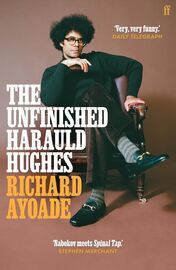 Euripides
EuripidesOn Harauld H – Chloë Clifton-Wright in NYRB:
‘The playwright Harauld Hughes, who was born in 1931 and died in 2006, remains little known and seldom read. His work, which includes Platform (1960), Table (1961), and Shunt (1965), is rarely staged in the US. His groundbreaking collaborations with the Norwegian director Ibssen Anderssen on films such as The Swinging Models (1966), The Especially Wayward Girl (1967), and The Deadly Gust (1973, and still the best film I’ve seen about an evil breeze) have bypassed even the most plugged-in genre aficionados. What’s more, Faber and Faber’s recent three-volume reissue of Hughes’s oeuvres complètes—The Models Trilogy, Four Films, and Plays, Prose, Pieces, Poetry—barely registered on the cultural cardiogram.
So why have people forgotten the recipient of the 1986 Euripides Prize for short-form drama (the only award that entitles the winner to six months’ complimentary mask hire)? Granted, Hughes’s last play, 1972’s Dependence, was roundly dismissed as “more pause than play” and “a new Mount Everest of inwardness” by The Times. Hughes also stopped writing for the cinema after O Bedlam! O Bedlam!—his state-of-the-nation address that sought to combine the supernatural with skiffle. The film, if reports are to be believed, collapsed during production, and we know that, within the cinematic arts, there is no sin greater than failing to make a profit.’
(…)
‘But I have, as Hughes’s first biographer, Augustus Pink, once put it, “the zeal of the convert.” I can’t let so much Hughesian treasure languish unseen in the rancid sod of disinterest. For my first true experience of theater—of what language can do—was the West End revival of Hughes’s Roost (1962).’
(…)
‘When I got back in the car, I told Angus I wouldn’t be buying him any more alcohol and that, in fact, what he was doing was wrong and it wasn’t the only wrong thing I knew he was doing. I would write and partially stage a rock operetta about power imbalance. I would set fire to the chemistry lab. I would leave school. I would sue the school. They would pay me off. I would start a literary magazine. I would give it a one-word title that people would begrudgingly admit was clever once they looked up what it meant. I decided to read everything, to see everything, to marinate myself in poetry and, when necessary, prose.’
(…)
‘Like Harauld Hughes once said, the logistics of marital betrayal takes nearly all the fun out of it.’
(…)
‘His hunting ground is our collective unconscious; he is not fooled by our camouflage; he will shear the wool from our startled peepers; he will pour his heart into our naked eyes. Harauld knows who I am. Harauld knows us all. How else could he write like that?’
Read the article here.
The collective unconsciousness is his hunting ground.
Indeed, how could we live without Harauld Hughes?
Marinate yourself in poetry, as long as it last.
August 7, 2025
Circle
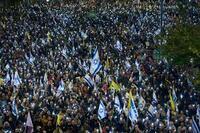 Return
ReturnOn defeat – Yael Freidson, Noa Shpigel, Ben Samuels, Reuters and Jack Khoury in Haaretz:
‘According to a statement issued by the Prime Minister's Office, the cabinet adopted what it called "the five principles for ending the war with a majority vote."
The five principles are, according to the order they appeared in the PMO statement, are: Disarming Hamas; the return of all hostages, both the living and the deceased; the demilitarization of the Gaza Strip; Israeli security control of the Gaza Strip; and the establishment of an alternative civilian government that is not Hamas or the Palestinian Authority."
While the statement did not say how many ministers voted for the plan – which was opposed by the top security level – it said that "a decisive majority of cabinet ministers believed that the alternative plan presented to the cabinet would not achieve the defeat of Hamas or the return of the captives."’
(…)
‘Netanyahu's means that the IDF would likely engage in combat even in areas where hostages are believed to be held – a policy the military has said it avoids, for fear of endangering them. IDF chief Eyal Zamir opposes the move and has come under increasing criticism from Netanyahu's circle.’
(…)
‘It was unclear whether Netanyahu was foreseeing a prolonged takeover or a short-term operation aimed at dismantling Hamas and freeing Israeli hostages. Total control of the territory would reverse a 2005 decision by Israel by which it withdrew Israeli citizens and soldiers from Gaza.’
Read the article here.
Sacrificing everything, the Gazans, the hostages, the state of Israel of maybe, just for his own political survival.
When will Trump decide that it’s time to say: no. I’m afraid not before fall.
Fall 2025. But you never know.
The repercussions of this disaster will outlive Netanyahu and the other criminals he is surrounded by.
August 6, 2025
Eternal
 August 17
August 17I’m looking for a ride on August 17, from Stowe VT, to Greensboro VT and back to Stowe, to watch the final 2025 performance of Circus Smirkus. It’s a ride for me and my 4-year-old son.
In return I have two tickets for you for the show, and eternal love.
Responsibility
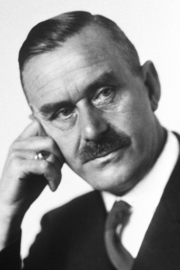 Anything
AnythingOn the continuation of a disaster – Amos Harel in Haaretz:
‘Netanyahu has stuck to this line ever since – blaming others while taking no responsibility for anything. That's how he has managed to oust all the previous defense chiefs while remaining prime minister even after 22 months of war.’
(…)
‘The bottom line is that there are things that even the ouster of a chief of staff cannot dim. The government, due to its mistakes and failings, has positioned Israel in a precarious strategic position in Gaza. These include strategic mistakes, almost as serious as ones made in the period leading up to October 7. Even if the father, son and the holy ghost now attack Zamir, they will not advance a victory in war or a hostage deal.’
Read the article here.
A precarious strategic decision is a nice understatement for war crimes.
The these crimes will come to hunt the perpetrators is true.
And of course, some war crimes will be largely forgotten because the perpetrators ended up as victors.
But victory is not everything, as already Thomas Mann stated in the thirties.
August 4, 2025
Stances
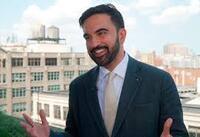 Support
SupportOn a litmus test - Liam Stack in NYT:
‘Steve Israel, a former Democratic member of Congress who represented parts of Long Island and Queens, said that Mr. Mamdani’s primary victory was “‘Twilight Zone’ stuff” for some Jewish New Yorkers.
“Mamdani’s positions on Israel up to now are way out of the mainstream of the Jewish community, and the irony here is that his progressive policies on economic issues would have at least a plurality of support by Jewish voters,” he said. “But the toxicity of his positions on Israel have just become impossible for those same voters to forgive.”Yet none of Mr. Mamdani’s stances kept him from winning a decisive primary victory over Mr. Cuomo, his closest competitor.
It is difficult to determine how many Jewish voters supported Mr. Mamdani because even in New York, the Jewish population is too small to be measured with precision by most polls. Neighborhoods with large numbers of Orthodox Jewish residents voted overwhelmingly for Mr. Cuomo. He also won other heavily Jewish areas like Riverdale in the Bronx, though outside of Orthodox neighborhoods, the Jewish population is generally not concentrated enough to allow analysis using precinct-level vote data.’
(…)
‘Responding to the opposition he has faced, Mr. Mamdani has made a concerted effort to reach out to Jewish community leaders across the city since his victory, including well-known rabbis and elected officials like Representative Jerrold Nadler, a Manhattan Democrat, who endorsed him immediately after his primary win.
He has also moderated his position on the slogan “Globalize the Intifada,” which he declined to condemn in June, though he said he had not personally used it. Pro-Palestinian activists view the phrase as a cry for freedom, but many Jews see it as an endorsement of antisemitic violence. Last month, Mr. Mamdani said he would “discourage” people from using it.’
(…)
‘“It begs the question of what their real priorities are,” said Ruby Edlin, 28, who canvassed for Mr. Mamdani in Park Slope during the primary. “Is this actually about protecting Jews, or is it about trying to adhere to some obsolete litmus test about support for Israel that actually doesn’t apply to New York anymore?”’
Read the article here.
The times are changing, loyalty to Israel is not a litmus test anymore.
Maybe it’s different among the ultra-orthodox, or at least some of the ultra-orthodox, but most of the Jewish people outside Israel feel that the Jewish state had become a burden, a liability, something you need to disassociate yourself from.
August 3, 2025
Armenians
 Response
ResponseOn the identity of victimhood – Daniel Blatman in Haaretz:
‘For over a century, Turkey has pursued a policy of denying the Armenian genocide perpetrated by the Ottoman Empire between 1915 and 1918. Its mechanism of denial is evident in many areas, including diplomacy, academic publishing, international public opinion and a co-opted scholarly community.
Its objective is to prevent the use of the term "genocide" when referring to Turkey's actions and to advance an alternative narrative – one that portrays the deportation and mass killing of Armenians as necessary measures taken in response to an internal security threat, rather than as the outcome of a deliberate policy of extermination.’
(…)
‘Among scholars, there's a broad consensus that approximately 1.2 million Armenians were killed or died. The Turkish narrative, however, asserts that the numbers were significantly lower, roughly 350,000, and that many perished from disease, clashes with local tribes or the hardships of the journey, rather than from explicit orders of extermination.’
(…)
‘A similarly dangerous trend is unfolding in Israel regarding the horrific crimes in the Gaza Strip. In June 2024, Dr. Lee Mordechai, a historian at the Hebrew University of Jerusalem, published a report titled "Bearing Witness to the Israel-Gaza War," which has since been updated several times in response to ongoing developments, most recently in July 2025.
The document offers a methodical and detailed account of Israeli actions in Gaza, including actions that may constitute war crimes and potentially even that of genocide. It's based on eyewitness testimonies, satellite imagery, video documentation, reports from international organizations and numerous accounts from both Israeli soldiers and civilians on the ground. It describes the killing of unarmed Palestinians, repeated attacks on refugee camps, targeting of people seeking medical aid, the deliberate starvation of the population and the destruction of infrastructure, including hospitals, water facilities, power stations, universities and mosques. The report further documents tens of thousands of deaths, most of them women and children, as well as mass hunger.’
(…)
‘In an opinion piece published earlier this month in Haaretz, Prof. Michael Spagat, a world-renowned expert in calculating casualties in conflict zones, estimated that the death toll in Gaza has surpassed 100,000. Israel has reduced Gaza to rubble – a place unfits for human habitation. It has indiscriminately killed innocent women and children, targeted doctors and medical and humanitarian aid workers, and created conditions of starvation and deprivation.
This is genocide.’
(…)
‘This approach stands in stark contrast not only to Lemkin's original definition of genocide, which emphasized the gradual, institutional and cultural destruction of ethnic groups, but also to later scholarly interpretations that stress the concept of "cumulative intent."
Genocide does not require a single, explicit directive; rather, it's the result of a process in which rhetoric, policy, political discourse, collective dehumanization and repeated patterns of action converge into mass acts of destruction.’
(…)
‘The comments written by the Yad Vashem chairman are unsettling not only because of his silence, but also because his words are wrapped in a cloak of ostensible institutional integrity, while turning an arrogant back to the sense of historic responsibility that is supposed to inform the memorialization of the Holocaust. "Six million Jews are entitled to an institution that deals with them alone," writes Dayan – suggesting an exclusivity of the memory of murdered Jews as an excuse for hardheartedness, for closing one's eyes and maintaining silence in the face of ongoing war crimes and tens of thousands of slaughtered and starved people. All part of the terrible crime being perpetrated by the descendants of another genocide, the Shoah, among others.’
(…)
‘When a commemorative institution such as Yad Vashem chooses not only to remain silent, but to openly admit its decision to do so, it can no longer be regarded as an institution of memorialization. It becomes, willingly or not, an institution of self-righteousness and denial. And when heinous crimes are perpetrated only a few dozen kilometers away, by the same young people who visited the institution a few years back, and who are now being conscripted into the army, such silence isn't neutrality, it's complicity.
Turkish American sociologist Fatma Müge Göçek examines in her book, "Denial of Violence: Ottoman Past, Turkish Present and Collective Violence Against the Armenians, 1789-2009" (2015), the roots of the denial of the Armenian genocide as a prolonged and ongoing psychosocial process. She asserts the denial is a psychosocial collective response, taking place across four generations of Turks, to dealing with an inconceivable crime.’
(…)
‘For the past three generations Israel too has been constructing an identity of victimhood, ranging from acts perpetrated during the Holocaust to those of Hamas on October 7. It denies its own crimes and is therefore living in a permanently distorted reality. Any attempt to speak about Israel's crimes against the Palestinians is seen as a threat not only to the image of the nation but to its very survival. The defensive narrative has become foundational to Israel's national identity, and any criticism of this narrative is met with the kind of institutional and public violence we are witnessing today.’
Read the article here.
The identity of victimhood is catastrophic for individuals, but mortal for nations.
This construction of this identity will cause denial of ‘inconceivable crimes’ and will produce all kinds of excuses for these crimes.
August 2, 2025
Hot
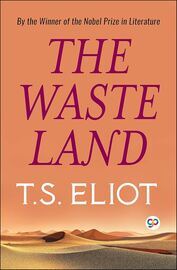 Rare
RareOn men and books – Mareen Dowd in NYT:
‘It was one of the most erotic things I ever heard. A man I know said he was reading all the novels of Jane Austen in one summer.
At first, I figured he was pretending to like things that women like to seem simpatico, a feminist hustle. But no, this guy really wantedto read “Northanger Abbey.”Men are reading less. Women make up 80 percent of fiction sales. “Young men have regressed educationally, emotionally and culturally,” David J. Morris wrote in a Times essay titled “The Disappearance of Literary Men Should Worry Everyone.”The fiction gap makes me sad. A man staring into a phone is not sexy. But a man with a book has become so rare, such an object of fantasy, that there’s a popular Instagram account called “Hot Dudes Reading.”’
(…)
‘I asked my friend Richard Babcock, a former magazine editor and novelist who taught writing at Northwestern, about the male aversion to reading. His new novel is “A Small Disturbance on the Far Horizon,” set in the Nevada desert in 1954 under the shadow of nuclear bomb testing. It follows three people whose lives are entwined. “The book is about guilt, adultery, murder, a chase through the mountains — you know, the usual day-to-day stuff,” Babcock said wryly.
“Not to blame the current cultural landscape on Ronald Reagan,” he said, “but I think the obsession with money and wealth that arrived in the 1980s may have encouraged the false idea in men that there was little to learn from a novel. If you want tips on how to crush your rival, better to read nonfiction.’
(…)
‘After that, a New Yorker named Paul Bergman emailed me an invitation to his book club — all men, lawyers and a judge who had gotten to know one another from the Brooklyn U.S. attorney’s office.
“For the last 45 years,” Bergman wrote me, “we’ve been sharing our thoughts on books we’ve read.” Would I join a few sessions on “Middlemarch”?Dear reader, I did.’
Read the article here.
How many times did I encounter a male at a party, after a book launch, in a bookstore, over dinner, who said: ‘My wife reads fiction, I don’t.’
Sometimes it was said slightly more charming: ‘My wife loves your books, can I take a picture of you?’
No lamenting, no cultural pessimism, it doesn’t matter how many readers you have, what counts is, who is reading you.
Arnon Grunberg's Blog
- Arnon Grunberg's profile
- 415 followers



